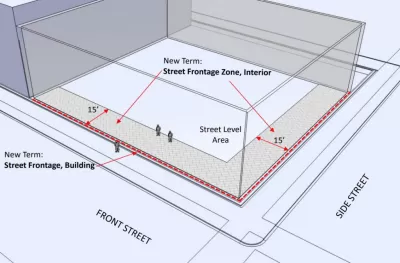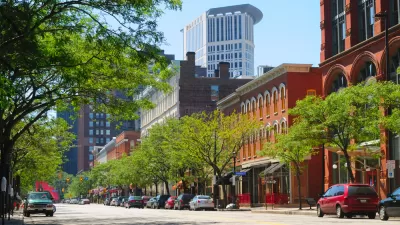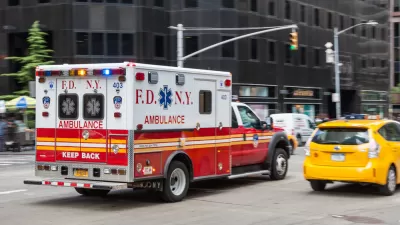The city of Milwaukee will require new commercial developments to include a 15-foot "street frontage zone" to encourage walking.

"As more and more apartment buildings take hold across Milwaukee, the Department of City Development (DCD) is updating the zoning code to clarify how the first floor should be designed," reports Jeramey Jannene.
"A new policy will require that street-activating uses, be it [sic] an apartment lobby, fitness center, community room or commercial space, be at least 15 feet deep," adds Jannene.
The changes to the city's frontage requirements will impact most developments on commercial corridors, depending on the zoning designation of the development.
"The Zoning, Neighborhoods & Development Committee unanimously approved the change as part of an omnibus update to the city’s zoning code," according to Jannene. The article cites a 2015 article by Laura Bliss in making the case for the walkability effects of first-floor design requirements.
FULL STORY: City Adjusts Zoning for First Floor Design

Planetizen Federal Action Tracker
A weekly monitor of how Trump’s orders and actions are impacting planners and planning in America.

USGS Water Science Centers Targeted for Closure
If their work is suspended, states could lose a valuable resource for monitoring, understanding, and managing water resources.

Congress Moves to End Reconnecting Communities and Related Grants
The House Transportation and Infrastructure Committee moved to rescind funding for the Neighborhood Equity and Access program, which funds highway removals, freeway caps, transit projects, pedestrian infrastructure, and more.

Portland Council Tentatively Approves Sidewalk Repair Plan
The proposal would address sidewalk needs in Portland’s District 1 and District 4.

Expanding Access to Design Education at Honolulu Community College
Honolulu Community College’s Architecture, Engineering & Construction Technologies program highlights the role of community colleges in preparing nontraditional students for careers in architectural and construction technologies.

Integrating Human Rights Into Energy and Extractive Sector Transitions
Why just transition efforts must move beyond economic considerations by embedding human rights principles into business practices to ensure equitable, transparent, and accountable outcomes for affected communities and workers.
Urban Design for Planners 1: Software Tools
This six-course series explores essential urban design concepts using open source software and equips planners with the tools they need to participate fully in the urban design process.
Planning for Universal Design
Learn the tools for implementing Universal Design in planning regulations.
City of Moorpark
City of Tustin
Tyler Technologies
City of Camden Redevelopment Agency
City of Astoria
Transportation Research & Education Center (TREC) at Portland State University
Regional Transportation Commission of Southern Nevada
Toledo-Lucas County Plan Commissions





























